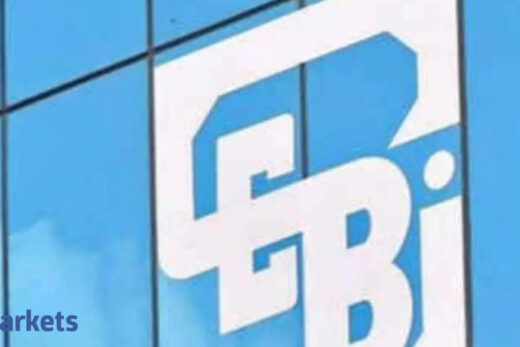Last month, the Securities and Exchange Board of India (Sebi) had
proposed to ease regulations governing the issue of shares with superior voting rights (SR shares) and sought feedback on it. The move
was aimed at addressing legacy issues for startup founders looking to list their companies and potentially help them retain control even after they have diluted their stake.
The concern emerges from the fact that family members of SR shareholders may also hold a stake in the company, and such investments, as per rules, would not be excluded while computing the collective net worth of the SR shareholder.
In its recommendations to Sebi, IndiaTech has also reiterated that the net-worth threshold should be retained at Rs 500 crore. ET has reviewed the note.
Rameesh Kailasam, chief executive of IndiaTech, told ET that another change needed in regulation is around the promoter’s minimum contribution of 20% after the company is listed. “We recommend that, in case of HGTCs (high-growth technology companies), Sebi should ideally consider exempting the promoters from complying with the minimum promoters’ contribution requirement, especially for companies which take the QIB route, since these companies have gone through multiple rounds of due diligence and capital infusion from institutional investors,” Kailasam said in his note to the regulator.
Typically, most Indian founders of startups have less than 10% stake by the time they are ready for an IPO, as they have diluted their holding in the company to raise capital from investors.
IndiaTech has recommended that the regulator should consider bringing this down to 5%, or even mandate promoters with less than 20% post-IPO capital to lock in their shares for one year.
“On account of multiple rounds of equity infusion, the shareholding of promoters is often reduced to very low levels and would be unable to meet the minimum promoters’ contribution requirement prescribed under the Sebi ICDR Regulations,” the note said.
ET had reported last month that Sebi’s move was triggered by the feedback it was getting from industry stakeholders at a time when a growing number of Indian startups are launching their IPOs. Zomato
has already listed on the bourses, while
Paytm,
Delhivery,
Nykaa,
Policybazaar and
Mobikwik are at various stages of launching their public offerings.
Sebi is also considering making changes to rules such as doing away with timelines for founders to issue SR shares before an IPO. Currently, founders are required to issue SR shares six months before going public. Sebi had said it got feedback that the requirement is onerous.
Another key issue regarding SR shares is the sunset clause, which deals with how long SR share rights will be valid after an IPO. IndiaTech has suggested that there should ideally be no limit on such rights, but if that can’t be done, then it should be for 15-20 years.
“We recommend a sunset period of at least 15 years, which can be extended for another five years with shareholders’ approval in a general meeting by way of a special resolution (for such voting all members vote on ‘one-share one-vote’ basis irrespective of the nature of their shareholding),” IndiaTech said.
IndiaTech’s founding members are Ola, MakeMyTrip and Steadview Capital. On its governing board are MakeMyTrip founder Deep Kalra, Steadview Capital’s managing director Ravi Mehta and Kailasam. PolicyBazaar, Nykaa, Mobile Premier League, Dream11, CoinSwitch Kuber and CoinDCX are among its members, besides investment fund Falcon Edge Capital.
While Sebi’s proposals last month didn’t explicitly call out changes in this regulation, as per the current framework, SR shares have a sunset period of five years which can be extended for another five years after shareholder approval.
With a spate of public listings of Indian tech companies lined up in the coming months of 2021, there is a growing view in the startup sector that the listing regulations should offer more flexibility to individual promoters and founders on operative control over their companies even after public listing.
According to an executive at a venture capital (VC) fund working with a startup planning an IPO, the markets’ regulator can also offer provisions to Indian startups to issue dual-class shares and SVR for stronger operative control after the listing.
“There is a view in the industry that the market regulator Sebi should allow issuance of superior rights shares or dual-class shares to help founders protect their interests as well as make succession plans in case of a family business,” the person said.
Globally, SR shares are a prominent safeguard for tech founders. SR shares confer higher voting rights to promoters than to lay investors. Sebi had unveiled guidelines for SR shares in 2019, but the framework is still at a nascent stage.
However, the issuance of SR shares and other categories of dual-class structure shares are common among founders of Nasdaq-listed tech startups, such as Facebook, Google, Pinterest, Snap Inc. and Lyft .
For instance, Facebook founder Mark Zuckerberg owns the majority of the voting rights to Facebook due to a dual-class structure that weights certain shares over others.



